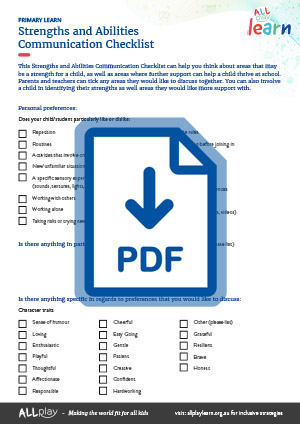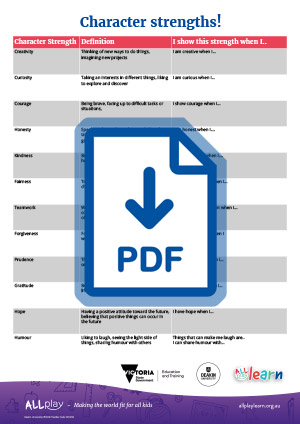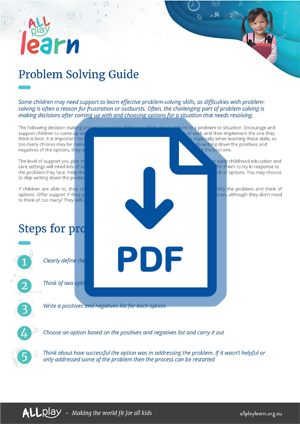
Learning and Memory
On this page:

About learning and memory
Learning and memory describe the ability to take in, process, store, and recall information. This may be information that we have heard (e.g. spoken instructions) or seen (e.g. being shown the location of items). Learning and remembering information relies on many different skills. First, we need to take in the new information. This relies on sensory processes (e.g. hearing, seeing, touching) and cognitive processes (e.g. paying attention, concentrating, processing information quickly, and storing information in an organised way). Once information is learned, we also need to be able to get that knowledge from our memory stores.
It is common for children to differ in the way they learn information. Some children are very good at learning verbal information, which means they may only need to be told something once for them to recall it. Others may be better at learning and recalling things they have seen.
Many young children with disabilities or developmental disorders need support with learning and memory. Some children with these challenges might find it hard to concentrate for long periods, take in and process information, or they may need more time to learn.

Evidence-based strategies
Maximise a child’s understanding
Keep it interesting for the child
Adapt activities to suit the child
Provide extra supports
Set goals for children

Best practice tips

Other considerations

Relevant resources
Visit our Resources page for a range of resources that can help to create inclusive education environments for children with disabilities and developmental challenges. Some particularly relevant resources for supporting children with learning and memory issues include:



